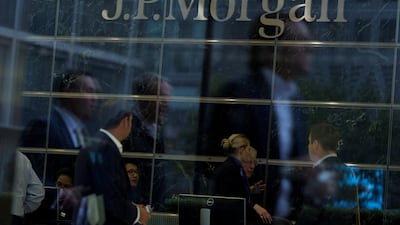Investment banks across the globe earned record fees during the first quarter of 2021 as companies rushed to raise money from bonds and buoyant equity markets, according to Refinitiv.
The amount of fees generated by investment banks during the quarter rose to $39.4bn – the highest since records began and a 45 per cent increase on the same quarter last year, the financial data company said in its quarterly Global Investment Banking Review.
"Powered by record issuance" on equity capital markets, including initial public offerings and money raised through special purpose acquisition companies, or Spacs, the fees earned by bankers advising on such deals surged four-fold year-on-year to $15.2bn. Fees for advising on bond issues climbed 4 per cent to $11bn and for syndicated loan arranging rose 6 per cent to $5.5bn. Earnings for advising on mergers and acquisitions work, however, fell 1 per cent to $7.7bn.
"The Americas contributed 59 per cent of all fees generated globally with $23.2bn, a 70 per cent uptick compared to 2020 levels and the highest percentage since 2000," according to the report.
Fees generated in the Europe, Middle East and Africa region grew 27 per cent to $8.1bn, driven by gains in the UK & Ireland.
The Middle East region also witnessed a 46 per cent jump in fees earned to $342 million, according to Refinitiv.
Globally, the top five investment banks earned just over one-third, or 34 per cent, of the fees generated. JP Morgan was the busiest bank in the quarter, generating 8 per cent of total fees earned, followed by Goldman Sachs with 7.9 per cent. Morgan Stanley with 6.3 per cent of fees earned, Citi with 5.9 per cent and BofA Securities with 5.5 per cent made up the top five.
The boom in the use of Spacs, also known as "blank cheque" companies, led to a 70 per cent surge in the amount of fees generated from the financial sector to $14.2bn. Advisory work for technology companies more than doubled to nearly $3.9bn.
Investment banking and capital markets activity "should continue to bolster" the earnings of the 12 global trading and universal banks this year, with US-based institutions "better placed than their European peers to benefit" from the increase in capital markets activity, Fitch Ratings said in a report on March 23.
"Capital and financing needs, together with monetary and fiscal stimulus underpinning market valuations and liquidity, should continue to support these businesses," the ratings agency said.


